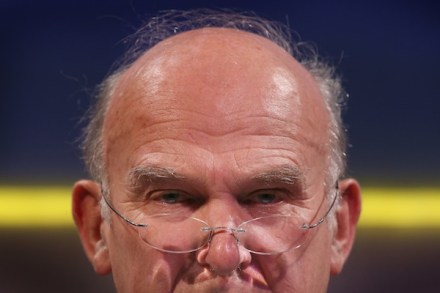Why did no Tory attack Vince Cable for his opposition to the NHS budget ring fence?
This weekend David Cameron argued that the Tories are the ‘only party simultaneously committed to proper investment in the NHS and bringing down immigration’. This makes it all the odder that the Tories didn’t seize on Vince Cable’s comments on the Sunday Politics yesterday. The Business Secretary declared: ‘I’ve always been very critical of ring fencing but the policy under this government I accepted as part of the coalition arrangements.’ In other words, if Cable—the senior Liberal Democrat economic spokesman—had his way, the health budget would not be ring-fenced. But this comment seems to have gone unnoticed by the Tories; there was no press release from a Tory MP highlighting it.





















